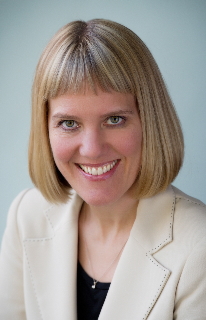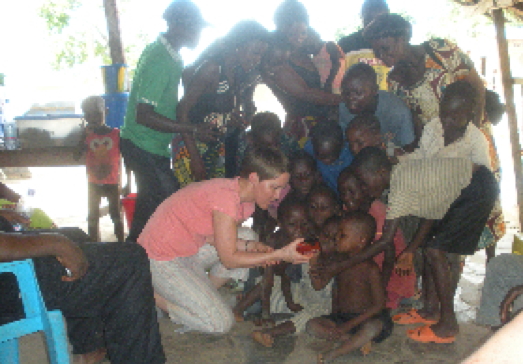In April, Rhylin Bailie accompanied her parents on a 10-day trip to the Democratic Republic of Congo, where her parents had lived for 2½ years as medical missionaries in the early 1960s. “What an amazing adventure, these two newlyweds going off to the Congo by boat,” she says. “In one hospital, my father was the only doctor; he once performed six C-sections in a single day. What they saw and experienced was so different from their medical careers back in Canada. And they had such an impact that people still remembered them, almost 50 years later.” Rhylin Bailie
Rhylin Bailie
The trip was eye-opening for Bailie, who not only saw her parents in a new light, but witnessed firsthand the primitive conditions in which people from the Congo still live. “They still walk hours every day to get firewood and water. They actually have less now than they did in the 1960s because there is no support from a corrupt government, and there is no external funding from missionary groups,” she says. “My mom said that the hospitals were the same as they were 50 years ago: the same beds, the same instruments, the same tiles on the floor.”
This global perspective is useful to Bailie in her current incarnation as Vice President, Communications and IR, for two companies with headquarters half a world away: New Zealand Energy Corp. in New Zealand and Southern Arc Minerals in Indonesia.
CIRI and Junior IROs
Bailie, who is co-chairing this year’s CIRI Annual Conference, is particularly pleased that the venue is Whistler, just a short drive from her hometown of Vancouver. While she knows that CIRI conferences offer great professional opportunities for senior IROs, she is convinced that the more junior members of the profession stand to benefit most from the networking and professional insights.
“There are so many small-cap mining companies in Vancouver, many of whom don’t have a budget for IR,” she says. “The people that need the support of a group like CIRI are the junior IROs new to the field.”
Like many IROs, Bailie found her way into the profession through a circuitous route. After majoring in environmental studies and biology at the University of Waterloo, she was hired for a three-day temporary stint at Placer Dome Inc. and ended up staying 11 years. During this time, she managed the back office of the treasury group, ensuring that the trades for Placer Dome’s large hedge book were handled correctly.
When Barrick Gold Corporation acquired Placer Dome in 2006, Bailie moved into what she describes as her “dream job”: an IR role at NOVAGOLD Resources. Ironically, she arrived at NOVAGOLD just days after Barrick launched a hostile bid for that company, too.
“There’s no busier time for IR than during a takeover bid. It was all hands on deck. The bid went on for 4½ months until Barrick finally backed down, and I learned more in that time than I would have learned in four years,” she says.
Almost immediately, Bailie realized that she was perfectly suited to IR. “One of the key things of being a successful IR person is you have to know a little about everything in the company. I have my environmental and biology background, which gives me insight into the social and environmental issues mining companies run into and an understanding of the technical side of things. I have the finance background from Placer Dome, and I have the writing background from my personal life,” she says. “So I get to draw on all of my skills, which is fantastic.”
Cutting-Edge IR
Bailie is proudest of the innovations she’s brought to the companies she has served as IRO. At NOVAGOLD, she championed sustainability reporting, publishing the company’s first sustainability report and then one of the industry’s first integrated reports the following year. “It’s important for investors to know that sustainability performance is just as important to a company’s success as financial performance,” she says.
She also championed social media, earning NOVAGOLD praise as one of the first mining companies to adopt Facebook and Twitter for investor communications. “Most companies are willing to push out information through social media but they won’t respond,” she says. “We got noticed because we were willing to have an open, public conversation with our investors.”
In 2011, Bailie was approached to start IR programs at two small-cap companies that share a CEO. She liked the idea of building an IR program from the ground up and, after 16 years in mining, was enthusiastic about the chance to learn the oil and gas industry by working at New Zealand Energy.
In these two small-cap resource companies, Bailie has hewed to the same principles of open communication she embraced at NOVAGOLD. Every corporate call is webcast and open to questions on the phone and online, to ensure investors around the world have a chance to participate. And she launched an online Q&A for both companies, allowing investors to post questions that she then answers directly on the website. “Every question gets answered,” she comments. “Everybody who has placed trust in us by investing in our company deserves the opportunity to have a conversation with us.”
 Rhylin sharing photos with children at Kibunzi Hospital in the Congo
Rhylin sharing photos with children at Kibunzi Hospital in the Congo